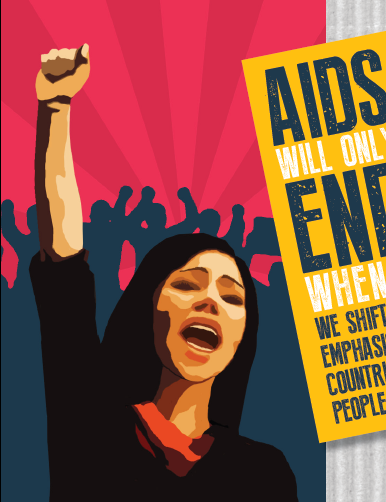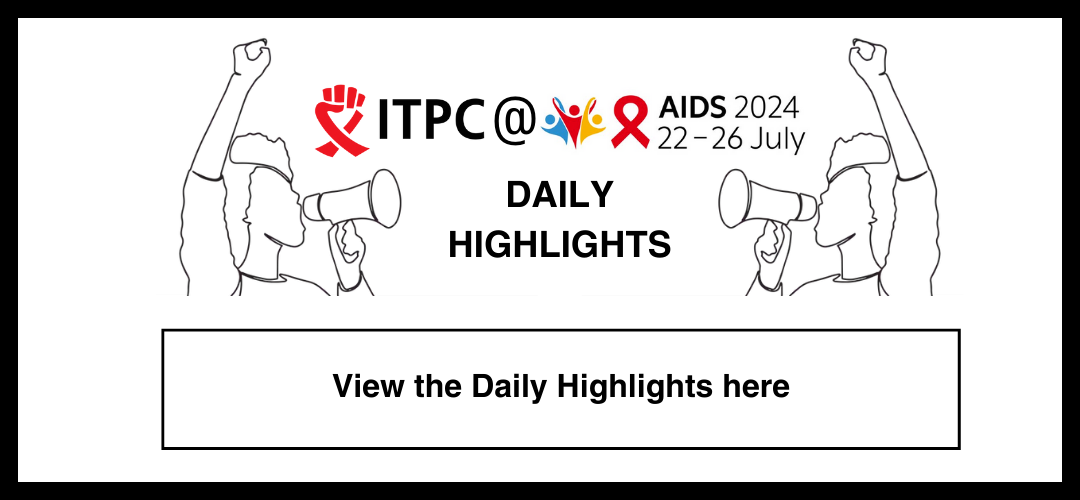A joint position statement from Africa Continent Civil Society and Community Groups is issued ahead of the of UN High Level Meeting on Ending AIDS 2016, following a consultation convened on 1 April in Nairobi.
We, representatives of networks of people living with HIV, youth groups, key populations at higher risk of HIV(1), AIDS service organisations and other civil society groups programming in HIV as well as sexual and reproductive health and rights (SRHR) in East and Southern Africa; the Indian Ocean region; West and Central Africa; and Northern Africa met on 1 April 2016 in Nairobi, Kenya to reach consensus on an African civil society common position in preparation for the 2016 United Nations General Assembly High Level Meeting on ending AIDS, scheduled for June 8 to 10, 2016 in New York, United States of America.
Encouraged by progress made in reducing or stabilising HIV infections and increasing the number of people on antiretroviral treatment in Africa;
Acknowledging the unprecedented political commitment(2) and financial investment by the global community and African Member States;
Acknowledging also the unparalleled involvement of people living with HIV (PLHIV) and key populations at higher risk of HIV in influencing policy, programming and monitoring of the HIV response;
Alarmed that the continent remains heavily burdened by the HIV epidemic;
Gravely concerned that the HIV response is threatened and exacerbated by an increased focus on biomedical interventions, reduction in funding, shifting political priorities, humanitarian emergencies, war and conflict, gender inequality, punitive and other harmful laws and policies, harmful cultural and religious norms and practices, corruption and mismanagement of funds, poverty and other development challenges as well as a high dependence on external financing;
Also concerned that key populations at higher risk of HIV have disproportionately high rates of HIV infection yet have poorer access to essential HIV services and, in this region, other groups of people(3) also face an alarming risk of HIV infection;
Recognising that the HIV response in Africa must focus attention and resources primarily, though not exclusively, on supporting and protecting girls, adolescents and young women;
Recognising also that, given this reality, we cannot become complacent or proclaim the end of AIDS prematurely;
Therefore, we strongly recommend that Member States, donors, the private sector, development partners, civil society and all other stakeholders in the continental HIV response do the following:
Leadership, Accountability and Sustainability
- Commit to an accountability mechanism with set targets and indicators aligned to the monitoring of the Sustainable Development Goals (particularly SDGs 3, 5, 10, 16 and 17) to monitor the progress of the implementation of the Outcome Document of the 2016 HLM on ending AIDS;
- Ensure that the HIV response is guided by a multi-sectoral, decentralised and integrated coordination mechanism based on comprehensive national plans and frameworks that are integrated into broader national development plans and regional strategies;
- Commit to fully financing the HIV response by utilising innovative financing options, reducing dependence on loan financing for health and increasing domestic funding through expanding the tax base and introducing new instruments through effective public private partnerships that can unlock resources from the growing private capital market on our continent including blended finance;
- Introduce strict measures to promote efficiency and effectiveness of financial investment in the HIV response as well as curtail and eliminate losses resulting from corrupt practices, mismanagement of resources and other related financial improprieties; and
- Strengthen inter-country and south – south collaboration in Africa to enhance the implementation of regional and continental AIDS strategies, address security threats, and preserve health systems deterioration caused by political and social conflicts
Service delivery: Prevention, Treatment, Care and Support - Commit to reaching the 90-90-90 targets and putting 95% of people living with HIV, particularly children, adolescents and key populations at higher risk of HIV, on immediate treatment regardless of CD4 count by 2030 as per the 2015 WHO treatment guidelines;
- Commit to a comprehensive PLHIV, women, adolescents and key populations driven prevention agenda, which includes massively increasing access to new prevention technologies such as voluntary medical male circumcision, pre-exposure prophylaxis (PrEP) and microbicides as well as quality-assured commodities such as clean needles and syringes, condoms and lubricants and services such as PMTCT and HIV self-testing and home testing;
- Accelerate access to treatment through adoption of economies of scale and bulk/block procurement of antiretrovirals (ARVs), local production of ARVs in Africa and addressing supply chain and procurement challenges;
- Strengthen local research and development capacity and use TRIPS flexibilities to increase access to first and second line treatment and new drugs;
- Strengthen laboratory systems and address other barriers to access such as out of pocket expenditure and distances to health care facilities;
- Work with civil society organisations to strengthen treatment literacy to increase treatment uptake and adherence;
- Develop chronic care services for both PLHIV receiving ART as well as PLHIV, key populations and other groups who contract communicable (e.g. TB, STIs) and non-communicable diseases (NCDs) such as hepatitis C, cervical cancer, diabetes and depression, which are linked to HIV infection, HIV treatment (in the case of some NCDs) and HIV infection risk; and
- Train, engage with and remunerate the providers of care and support and ensure comprehensive care and support services, which include social protection, free civil registration for birth and death as well as food security and nutrition for PLHIV, children, adolescents, key populations and other groups at risk of HIV;
Gender Equality, Human Rights, Justice and Inclusive Societies
- Commit to gender transformative programming in the HIV response with the dual aim of ending AIDS as a public health threat as well as reaching gender equality by 2030;
- Ensure the systematic integration and linkage of gender, SRHR, gender-based violence and HIV policies and programming;
- Commit to using gender data strategically and strengthening gender transformative approaches that enhance the agency and empowerment of women and girls and work towards 50/50 gender equal Member States;
- Invest in interventions that keep girls in schools and enhance their access to economic opportunities;
- Facilitate dialogues aimed at gender equality and empowering women and girls towards national and regional achievement of the SDG 5 goals by 2030;
- Undertake legal audits and promote dialogue to enact and enforce protective laws and reform harmful laws and policies such as mandatory testing, age of consent laws, property inheritance laws, laws that legalize child marriage and marital rape as well as the criminalization of HIV transmission, exposure and/or non-disclosure, adult consensual same-sex sex, selling of sex between consenting adults and possession of drugs for own use;
- Increase human rights literacy, protect human right defenders and strengthen redress mechanisms and monitoring institutions such as Human Rights Commissions, Prosecutors General, Ombudspersons, independent police investigating organizations and regional African human rights organizations;
- Develop legislative and policy guidelines for protective laws and judgments and strengthen the capacity of members of Parliament and other duty bearers including judges, police and healthcare providers on HIV, gender equality issues and human rights more broadly; and
- Facilitate dialogue with stakeholders such as PLHIV, key populations, other groups at risk of HIV, traditional and religious leaders and law enforcement officials and increase interventions to eliminate stigma, discrimination, change practices and modify aspects of culture and religion such as child marriages and female genital mutilation
Strengthening Evidence
- Strengthen efforts to capture data and strategic information related to the HIV response, with a focus on PLHIV, key populations and other groups at risk of HIV, and use this information to inform policies and programming; and
- Review and assess the impact of the HIV response to further analyse evidence, to guide priorities and inform efficient and judicious utilisation of resources
Resilient Community systems
- Refocus the HIV response from emphasis on a bio-medical approach to a more comprehensive approach that strengthens the capacity of community systems that create demand, deliver services, monitor programmes, promote accountability and address social and structural barriers;
- Commit to resourcing and strengthening community systems, leadership and the continued involvement of PLHIV, key populations and communities affected by HIV in the development, implementation and monitoring of HIV-related policies and programmes; and
- Acknowledge the crucial role of civil society and communities to monitor progress of the HIV response, ensure accountability, prevent inefficiencies, reduce transactional costs and guarantee high return on investments at national, regional and continental levels, including through frameworks such as the African Governance Architecture and African Peer Review Mechanism.
Nairobi, Kenya
1 April 2016
Download African Civil Society Common Position to the UN General Assembly High-Level meeting on Ending AIDS (PDF).

